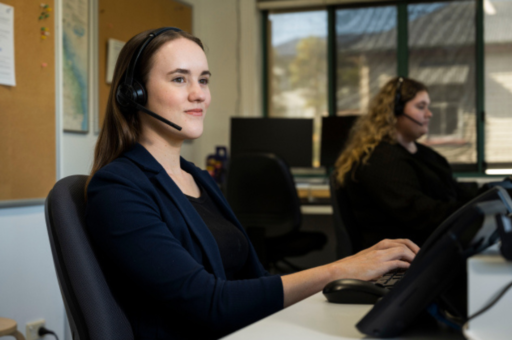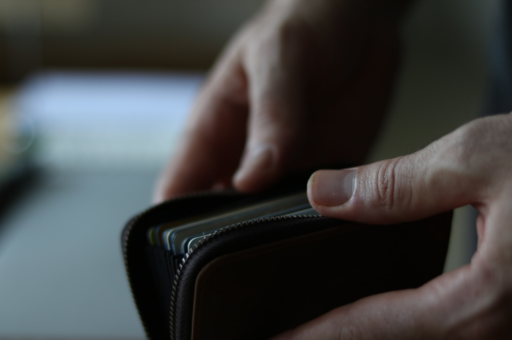
Left with nothing: How women rebuild financial stability after abusive relationships
Sep 11, 2024
When a woman leaves an abusive relationship, the struggle doesn’t end there – financial hardship often becomes the next challenge to overcome. Years of economic control and coercion can leave women without access to funds, or the ability to budget their way to stability.
We spoke to Jackie Smith, a Specialist DFV Financial Advocate at Micah Projects and Brisbane Domestic Violence Service (BDVS), about the path to reclaiming financial independence.
Through personalised support and advocacy, Jackie assists women impacted by domestic and family violence to break free from these financial traps and work towards recovery.
If there’s one thing Jackie Smith wants you to understand about economic abuse, it’s this: it can happen to anyone.
“Financial hardship and economic abuse can affect women from all walks of life, from highly educated professionals to women relying on Centrelink payments,” she says. “It’s not about intelligence or background. It’s something that can impact anyone.”
Jackie notes that many women leave abusive relationships with little to no assets, a situation outlined in Anne Summers' report, ‘The Choice: Violence or Poverty’.
“Many women in long-term relationships have their name on nothing,” Jackie notes. “When they leave the relationship, they realise they have no claim to any assets, and that’s where the struggle begins.
“But whether they have assets or not, when a woman leaves an abusive relationship, most are in financial hardship. The biggest issue is cash flow, with increasing expenses and limited income.”
Jackie’s work, which draws on her background in finance, is a lifeline for women who have recently left abusive relationships. As a specialist DFV financial advocate, Jackie uses a trauma-informed approach to guide her clients through the complexities of their situations.
Her clients are typically single mothers aged between 30 and 50, living on Centrelink payments and struggling with significant debt, often as a result of economic abuse. Referrals often come from police, refuges, health professionals or internal Micah Projects housing connectors, with each case requiring a tailored approach to meet the client’s specific needs. Some women also self-refer for financial counselling by contacting the Brisbane Domestic Violence Service directly.
Women leaving abusive relationships often face debts they didn’t even know existed, or were coerced into taking on by their partners. Jackie works closely with her clients to help them understand the nature of their debt and determine their immediate priorities, such as rent and food.
“You can’t budget when you’re in debt, especially when your income is less than your expenses,” Jackie explains. “Debt compounds quickly, and financial hardship becomes an endless cycle for many of these women.
“Budgeting is secondary to understanding their financial position. I try not to overwhelm them with tedious budgeting tasks, unless it's necessary. My main focus is addressing debt, because you can’t budget effectively when you’re drowning in it.”
Read next: How to leave a relationship when you’re financially dependant
Understanding your financial rights
Educating women about their financial rights and helping them recognise economic abuse are central to Jackie’s work. “Most of the women I work with are trying to get out of debt,” she says, “but they also want to understand their financial rights.”
For example, Jackie often asks:
- Are you living on Centrelink payments? These payments are protected under Section 60 of the Social Security Act, which may prevent them from being used to repay certain debts.
- How old is the debt? If no payments have been made in six years, the debt may be considered statute-barred and unenforceable.
- Were you coerced into taking on this debt, and did you personally benefit from it? This can determine whether the debt falls under the category of economic abuse.
These questions help Jackie assess whether the debt is legitimate or if it was forced upon her clients through economic abuse.
From there, her role involves advocating with creditors, explaining the woman's financial position, and seeking debt waivers.
“Many don’t know that under the Social Security Act, certain payments are protected and can’t be used to repay debt,” she says.
She works closely with Micah Projects case managers who engage with services like the police, health providers, and legal aid to ensure her clients have a comprehensive support system.
The financial advice every woman needs to know
Domestic and family violence (DFV) can leave lasting financial damage – and it’s often a burden that can take a lifetime to recover from.
“Many women in their 40s and 50s express regret for not having more financial awareness earlier in life,” Jackie says. “Financial literacy education, starting in high schools, could help prevent many women from falling into these situations later in life.”
Jackie says educating women about their financial rights is key to managing debt effectively, particularly for women affected by DFV.
“It's about understanding how to advocate for yourself in financial matters,” she says.
In Jackie’s view, there are several financial concepts that every woman should understand, regardless of her situation. She shares the essential advice she gave her own daughter, focusing on financial independence and security:
- Use a debit card instead of a credit card to avoid borrowing to spend.
- Have a bank account in your name where your pay is deposited, ensuring control over your own finances.
- Stay involved in family finances and regularly check bank statements and credit reports.
- Be aware of your partner’s financial situation, as their debts can affect you in a joint asset pool.
Jackie advises women to remain financially literate throughout their relationships, an awareness she believes can prevent many women from falling victim to economic abuse.
One of the most important pieces of advice she offers is to never hand over control of finances to a partner, as equitable and respectful relationships involve shared financial responsibilities and boundaries.
“Stay involved in the family finances. Check your bank statements, see what’s going on, check your credit file to make sure that what’s on there is what you expect.”
How to move forward
Jackie’s top recommendation for managing debt is to seek professional advice.
“Talking to a financial counselor, especially one who specialises in DFV, is critical,” she says. “Organisations like Women’s Legal Service Queensland provide essential support, while free government resources like MoneySmart also offer practical advice to help you regain control.”
For women with limited income, building savings might seem impossible, but Jackie suggests starting with small steps. “Even starting with an automatic transfer of $10 a week into a savings account can make a difference over time,” she says.
She also recommends accessing the NILS (No Interest Loan Scheme) program or connecting with services like the Financial Independence Hub, which help women establish savings accounts and set financial goals.
Jackie believes that when women have access to the right tools, they can regain control of their financial futures and break free from the cycle of economic abuse.
"If you've experienced domestic violence, you may have normalised certain behaviors without realising it,” she says. “It's important to recognise that, while recovery is possible for everyone, trust – especially in financial matters – can be deeply affected. Recovery is a journey, but everyone has the opportunity to rebuild and move forward."




